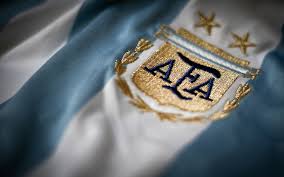By Paul Nicholson
March 2 – Argentinian football is in a mess and it doesn’t look to be clearing up despite the efforts of a FIFA normalisation committee parachuted in last July to take over the running of the federation and attempt to bring order to the chaos.
The issues are multiple but stem from a lack of money and a battle for control of the decision-making processes. And lurking in the background, as ever, is the politically motivated spectre of FIFA’s new executive and its operationally hands-on president Gianni Infantino.
Yesterday FIFA threatened the Argentine FA (AFA) with a possible suspension ahead of its crucial World Cup qualifiers against Chile and Bolivia later this month if it does not accept South American confederation CONMEBOL’s role in vetting candidates before the March 29 presidential election.
Earlier this week the resumption of the Argentinian league had already been postponed. The league has been on hold since February 5 (when Argentina’s summer break was due to end) because of financial difficulties.
Last Friday the Argentine players’ union called a strike over unpaid wages. Players union boss Sergio Marchi said in a statement: “The Argentine Footballers’ Union (FAA) considers conditions are not right to begin the second part of the tournaments organised by AFA and which had been scheduled for (March 3) in the case of the first division.
“So we announce that the players will withhold their work and not take part in official matches … since they are owed salaries that in some cases go back four months.”
The problems in Argentina go back much further than the last four months and are a tale of broken promises, corruption and the trading of political favours for potential personal gain.
Following the death of long-time and controversial president Julio Grondona in 2014 -recognised by many to be the second most powerful man in world football after FIFA president Sepp Blatter at that time – the AFA organised elections for a new president. A split vote (38/38) left the AFA with no president. With government deciding to pull the Futbol para Todos (football for all) programme which saw it fund the league for the broadcast rights which it distributed for free, Argentinian football was plunged into financial uncertainty.
As the AFA deteriorated in function, FIFA stepped in to oversee the situation and in July 2016 appointed a normalisation committee headed by Armando Perez, a decision sanctioned by Infantino.
Not all Argentinian stakeholders were happy with the decision and Fernando Mitjans, head of Argentina’s disciplinary committee, refused to take a position on the normalisation committee, instead travelling to Zurich to meet Infantino. The result of that meeting was that Infantino ordered the AFA Normalisation Committee to report all decisions to the disciplinary committee – a highly unusual route round for decision making, even in FIFA’s often convoluted circles.
Mitjans was also vice-chairman of the FIFA Appeal Committee. At the time of his meeting with Infantino, the FIFA president was under ‘pre-investigation’ by his own ethics committee for alleged breaking of the ethics code. Perhaps fortunately for all, it was decided (controversially in the eyes of Europe’s press) that Infantino had no case to answer.
Mitjans has since been embroiled in corruption controversy in his role as head of the AFA disciplinary committee. Argentine press released a tape of a conversation between Mitjans and the president of Boca Juniors in which he said he had two players likely to be suspended that that he needed for important Copa Libertadores games. Mitjans answered that the normal sanction would be five games but that if he could get some medical reports he could lower it to two games ensuring that they would be able to play. The players were subsequently suspended for two games.
Mitjans is FIFA and Infantino’s ultimate decision-maker in Argentina but so far there has been no word from the governing body of world football on the Boca Juniors case. Questions must also be raised about Infantino’s relationship with Mitjans.
Yesterday Insideworldfootball questioned the election promises and post-election rhetoric that Infantino is “bringing football back to FIFA”. In the case of Liberia this has certainly not been the case, in fact the opposite (http://www.insideworldfootball.com/2017/03/01/exclusive-call-forensic-audit-liberian-fa-accounts-exposes-infantino-ally-bility/). Can the same now be said of FIFA’s politicking in Argentina?
Last Friday’s AFA meeting voted to accept a government offer of $25.21 million, which will be divided among the clubs. It won’t clear their debts but it will help and should enable the league to resume. Also on the table are proposals for broadcast rights from Fox/Turner, ESPN and MediaPro.
But will this bring an end to the dark deal-making corridors of the political elite in Argentina. And how far are FIFA complicit in allowing them a free reign, normalisation committee or not? Meanwhile the world’s number one ranked nation will anxiously work on being allowed to continue with its 2018 World Cup qualifiers.
Contact the writer of this story at moc.l1734868300labto1734868300ofdlr1734868300owedi1734868300sni@n1734868300osloh1734868300cin.l1734868300uap1734868300

